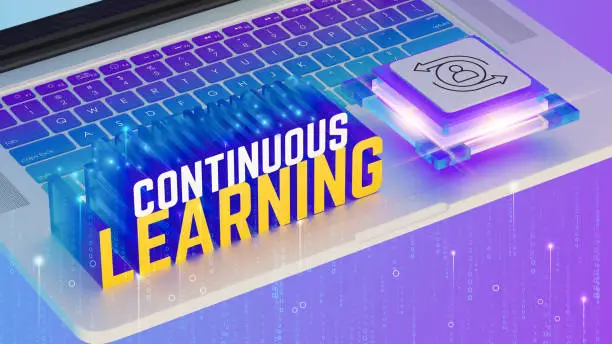
Thriving in the Digital Age: Key Skills for the Modern Workforce
- 0
Table of Contents
ToggleIntroduction
Since digital technology is advancing rapidly, rules at work are also evolving. Advances in technology are altering the jobs we do and the ways we communicate with our colleagues. It is getting essential for professionals to use digital tools and acquire new knowledge. In today’s digital environment, companies have to succeed.
Currently, companies require workers who have technology skills, are flexible and are aware of their co-workers’ feelings. The article discusses the skills necessary for people in the workforce today to be valuable.
Being actively involved in many cultures plays a crucial role in being successful nowadays.
Reaching success in this age requires being digitally literate. You should learn about the different digital tools, platforms and cybersecurity. LinkedIn’s recent research shows that the majority of jobs today require digital skills.
If you are digitally literate, working in the cloud, editing files on the internet and protecting your data is stress-free. Teams where people have Microsoft Teams or Slack skills find it more manageable to stay connected when working remotely.
Adaptient: You embrace and adjust to new situations.
With new technology arriving so quickly, workers must also keep up with the changes. Being adaptable means welcoming new changes and always being willing to learn something new. According to the World Economic Forum, because of technological advancements, it is expected that half of workers will have to learn new skills by 2025.
Flexibility in professionals helps them overcome challenges, feel less stressed and maintain their productivity. People who can easily adjust their strategies or approach are appealing, because being adaptable plays a big role today.
Using Emotional Intelligence: Interacting with Others via the Internet
Being successful online at communicating, collaborating and leading requires emotional intelligence (EQ). Since teams often chat online, being aware of and responding to emotions supports great teamwork. According to Harvard Business Review, the quality of your work is mostly affected by EQ.
Specialists depend on their empathy, listening to others and controlling emotions to address problems and nurture trust between people. Workers’ better EQ means they can no only exchange information online easily, but also collaborate on tasks, important elements for success in the Digital Age.
Using Technology Requires Critical Thinking and Problem-Solving in the Workplace

Thanks to growing use of technology, we require critical thinking more today than we did in the past. AI handles jobs that are repeated and humans make sure the outcomes are correct. Professionals are able to guide by looking at different situations, considering several paths and choosing what is best supported by facts.
Thus, as a data analyst, you need to read over the reports and also pick out patterns to help predict near-future developments. Today, employers value employees who can move data effectively using critical thinking.
Talking with Friends on the Internet
Good and clear communication is still as important today as it once was. Since email and apps are the main ways professionals communicate, each message should be brief and polite. Grammarly’s latest findings reveal that poor online communication costs U.S. businesses more than $1.2 trillion annually.
There is a chance that miscommunications among team members could cause a project to be finished later and leaves them less motivated. Good writing and speaking skills and the knowledge to work through digital tools, boost cooperation and allow a person to take the lead. That is why we need to be exceptional at digital communication to succeed in today’s world.
Collaborating with Other Professionals in Remote Places
As people begin to work in different settings, the nature of teams has also changed. Nowadays, people in the workforce are expected to connect with others online who might be in different time zones. Trello, Zoom and Google Workspace are worth having for the shift, but a person’s social abilities are still crucial.
A research paper from Stanford reveals that strong trust among members can make a remote team more effective than an in-person one. Noticeably, when someone keeps the team informed, meets all deadlines and communicates with others, his or her ability to handle rapid changes is stronger.
Proper and Wise Use of Data

Today, data is used for major decisions, so understanding it benefits a person a lot. You must use, interpret and rely on data for all your tasks at work. Tableau’s recent research has found that most workers lack confidence in how they use data.
A professional in marketing analytics should be familiar with analytics, making data graphics and using relevant metrics. One way to see this is that marketing focuses on the achievements of their campaigns, while HR is interested in how many employees participate. Being data literate leads to better decisions in our current age of technology.
Using Modern Technology: Relieved by the Use of Innovation and Automation
Understanding these programs benefits a person in their continued success in selling. A report by McKinsey shows that as many as one-third of all the jobs handled by the workforce now could be automated within 10 years. Anyone who is skilled with computers may perform basic duties and spend extra time on important and creative assignments, enabling them to succeed at work.
Making use of Good Time and Discovering Motivation Through the Internet
Social media, many notifications and combining personal and work tasks are just some of the digital distractions we experience today. As a result, students who achieve their goals must be able to manage their time properly and encourage themselves. Both Asana and Notion support with tasks, but being dedicated and deciding on specific goals is what truly counts.
A survey by Buffer has found that nearly one-quarter of remote employees are struggling to finish their workday. Drawing limits, prioritizing jobs and paying attention will lead to better outcomes. If you use these tips, you will succeed and become someone who can be productive which matters greatly nowadays.
Regularly Improving Your Expertise

Digital technology is always becoming better. Fresh updates in technology, platforms and techniques appear every single day. For this reason, people ought to keep learning right up until they are no longer living. A large number of people turn to Coursera, LinkedIn Learning and Udemy to gain new skills via the Internet.
PwC’s report discovered that more than three quarters of employees are willing to acquire new expertise to maintain their jobs. People who invest effort in learning new skills are praised by their employers. If experts keep up with new developments, they can deal with changes swiftly and enhance their careers.
Conclusion
Successful people in such a time rely on technology, feel emotions, embrace changes and keep themselves educated. Because technology is changing the way people work, they should be ready to change and adapt.
We must understand technology and how to interact in an online environment. If experts work on their people and data skills, they can achieve greater success in their careers today and tomorrow. Those who can adjust to changes stand a better chance of being successful.